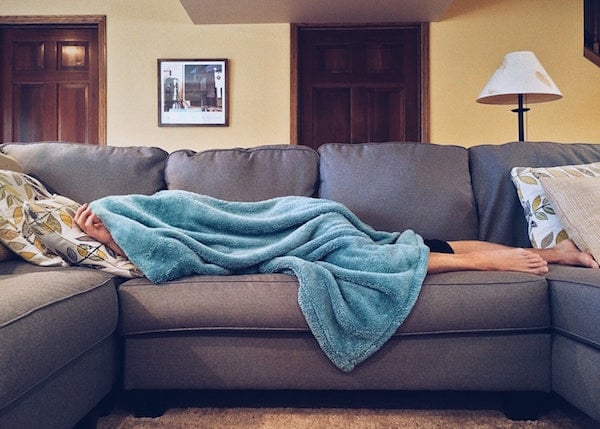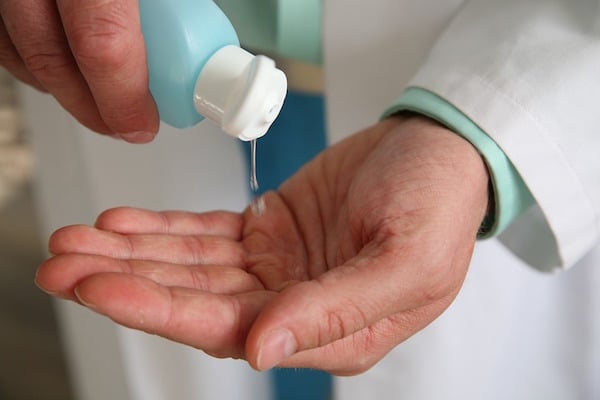By Destiny
07/10/2019

Body piercings are our favorite fashion statement, but the fact remains that undergoing a new piercing is an act of wounding your body. As a wound, it is susceptible to that scary word: infection.
Of all the piercing complications, infection is the most common. This is partially because piercings interrupt scabbing, which is a critical step in healing to avoid infection. When you receive a minor scrape, your body will immediately start clotting the blood so that it can put a protective layer over the open wound to keep out harmful bacteria. In a piercing, you want to keep the wound open so it heals a fistula (the piercing hole). This leaves your new piercing vulnerable to infection-causing bacteria.
Since it’s so easy to contract an infection in a new piercing, it’s important to know the causes, symptoms, and treatments so that you can avoid nasty complications like scarring, necrosis, or even (in extremely rare cases) hospitalization or death.
Here’s everything you need to know if you think you’re getting a piercing infection.
Believe it or not, it’s actually kind of tricky determining whether a new piercing is infected or just exhibiting the normal signs of a healing hole in your body. The symptoms of an infection are really symptoms of natural healing in overdrive.
In general, here’s what’s normal with a healing piercing:
Depending on your body and how sensitive you are, these symptoms can feel minor or severe, but they’re generally nothing to be concerned about for the first few weeks of a piercing.
Much of the tenderness in the early days of your piercing is a result of your body’s effort to keep the wound clear of bacteria. Swelling and redness occur when blood is rushed to the area to bring nutrients that encourage healing while the clear discharge works to flush germs from the body.

When your piercing becomes infected, your body kicks into gear to clean the infection out. This is why the majority of the symptoms of piercing infections match natural healing, but in excess.
So what does an infected piercing feel like? Here’s what to watch for:
You’ll likely be able to tell when your piercing has crossed into infection territory; your body does a good job of notifying you when something is wrong. However, if you’re unsure, talk to your piercer.
Infections are nothing to trifle with. While very few piercing infections lead to hospitalization, it has happened, so you must be careful. If it progresses too far, it could lead to limb amputation or even death, so it’s best to get on top of your infection when it only requires minor treatment. You don’t want your new cartilage piercing to turn into a warning for other new piercees.
Beyond the ultra scary stuff, piercing infections are unsightly, and they can lead to scarring or piercing rejection. Even a minor infection could mean the end of your new piercing, so if only for the sake of your new style, infections are something to take seriously.
Luckily, if you catch the infection early enough, home treatments should clear the infection, and you won’t need to spend time and money at the doctor.
If you’re concerned that you are developing an infection, simply increase your aftercare practices. If you haven’t been conducting saline or sea salt baths, start doing so in order to flush out the piercing. Make sure that you keep the area clean, and conduct a cleanse 2 – 3 times a day. It’s important to note that there is such a thing as too much cleaning, and you can irritate the piercing, actually making the infection worse, so be wary.

Do not use disinfectants that aren’t approved for piercing aftercare. This includes ointments and other chemicals that are usually safe for minor wounds. These can irritate your piercing and encourage infection.
Do not take out your jewelry. The jewelry helps the infection to drain, and if you take out your jewelry, the piercing hole could close, trapping the infection and making it worse.
Beyond cleaning the piercing, add probiotics and other infection-fighting foods to your diet to help clear out the infection. Your body needs nutrients in order to run at its best, so make sure that you’re giving it what it needs to succeed.
If the infection still hasn’t cleared up, talk to your piercer about other methods. If the infection seems serious, then you should seek out medical attention. More serious symptoms include fever, nausea, pain, and red lines coming from the infection.
Most piercing infections are minor, painful inconveniences, but if you keep an eye on them, boost your aftercare regimine, and get help when you need it, you shouldn’t have too much of an issue clearing the infection. However, you must treat it seriously and understand that if left to fester, it could lead to nightmarish complications.
Choose quality starter jewelry, opt for a reputable piercer, and keep your piercing clean, and there’s no reason why you shouldn’t see happy healing.
One way to ensure that your healing piercing avoids complications from skin irritation is to choose the right materials for your body jewelry. Here are some of our favorite pieces made from 14k gold (a body jewelry material approved by the Association of Professional Piercers).
9 Replies to “Signs of Piercing Infection: Everything You Need to Know”
jayci woods, 26 Jan 2018
the jewelry i had in my belly button piercing caused it to hurt so i took it out to put my original one back in and it won’t go in and i’ve cleaned it and stuff has come out but now nothing is it just hurts to try to put in and idk what to do.
Anonymous, 13 Feb 2018
Same here !!
maddison, 07 Jan 2020
HI, I have 2 cartilage piercings and between them, I have a bump that was normal and never thought too much about until it swelled from normal skin to a clear bubble filled with pus and blood with a black tip. I have tried salt water, after care spray which I used like to help with my new piercings after getting them done. but it’s like a boil, cysts, and obviously can’t find any information to help other than go to the doc. I am not keen as I am not in pain other than peoples opinion to it’s mutant keliod scar.
jessica, 21 Jan 2020
i changed my jewelry after 2 month of getting my ears pierced and at night i was sleeping on them and i woke up in the morning with a bump and it kind hurts swollen a little red what could it be or what could i do so it could go away
Ibtissam Silorh, 29 Jan 2020
I got my ear pierced like 6 days ago ,and I was trying to clean it up so when I was trying to place the piercing I felt nauseous, so I had to stop. It’s kinda weird.
Brandi, 06 Jan 2021
I had a double helix piercing done 1 week ago yesterday. At the 1 week mark my ear is slightly swollen and red. No pain, no puss. Should I be concerned and what can I do.
FallenDarkAngel, 05 Feb 2021
I got my nipple pierced and I noticed one tiny dark line on my nipple by the piercing hole. It doesn’t hurt and it hasn’t changed in size since I’ve noticed it. And have done everything as I’m suppose to. Is it something I should be concerned about or has this happened to anyone else.